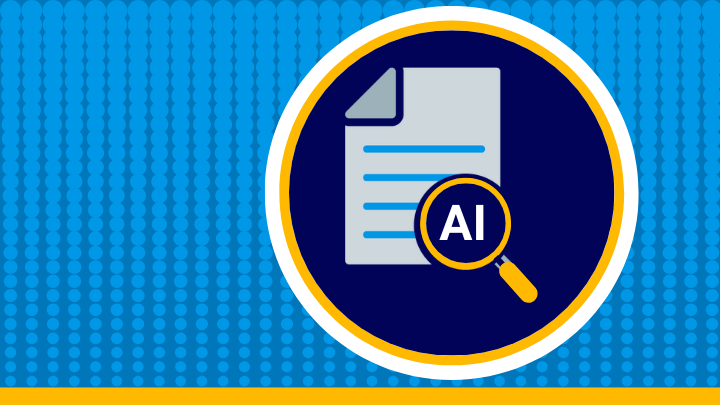Hospitals and healthcare systems face a myriad of challenges beyond patient care, particularly in terms of revenue cycle management (RCM). From scheduling and billing to technology integration and administrative tasks, the demands on healthcare providers and their staff are endless. An important question arises: How can healthcare providers maintain their focus on patient care and recover earned revenue from payers without being overwhelmed by operational duties?
One increasingly popular solution is partnering with a quality RCM vendor to outsource revenue cycle management in healthcare. This strategy can significantly enhance a hospital’s financial health and operational efficiency through several key mechanisms via effective revenue cycle in healthcare.
Boosting Operational Effectiveness
When hospitals attempt to manage their revenue cycle in-house, it often results in significant time inefficiencies. Providers and staff must divert attention from necessary duties to train on billing procedures, learn new codes, investigate rejected claims, and continually update office processes. Each of these tasks represents a substantial time investment that could otherwise be directed toward patient care.
Managing today’s healthcare rev cycle requires a diverse team of specialists that most hospitals would struggle to recruit and retain in-house. For example, motor vehicle accident (MVA) claims often involve complex third-party liability scenarios requiring specialized legal expertise to navigate multiple insurance policies, attorney liens, and state-specific regulations. These claims can take months or even years to resolve, tying up significant resources and requiring constant follow-up that pulls staff away from more immediate revenue-generating activities.
By partnering with an RCM vendor, hospitals can gain access to a complete ecosystem of specialists—including attorneys who understand the nuances of liability claims, clinicians and clinical documentation specialists who can effectively appeal clinical denials, and data scientists who can predict payment patterns and optimize workflows utilizing advanced technology such as artificial intelligence (AI), machine learning (ML), and large language models (LLMs).
Gaining Financial Clarity
By working with thousands of healthcare providers across the country, experienced RCM vendors develop unique insights into emerging industry patterns and regional trends that individual hospitals might miss. This broader perspective allows partners to spot early-warning signs of reimbursement changes, identify payer behavior patterns, and benchmark performance against similar facilities in their region. When a vendor notices multiple clients experiencing similar challenges—whether it’s a spike in specific denials types or changes in payer policies—they can quickly implement solutions across their network, helping hospitals stay ahead of potential revenue impacts.
Beyond industry-wide insights, RCM partners can provide detailed analysis of your hospital’s specific market dynamics and local payer behaviors. Their teams of billing and collections experts continuously analyze data from your community and surrounding region, identifying opportunities unique to your market. This combination of national expertise and local market intelligence helps healthcare providers make more informed strategic decisions about their healthcare revenue cycle management, while maintaining focus on their core mission of patient care. When concerning trends emerge—whether they’re specific to your facility or part of a broader regional pattern—your RCM partner can implement proven solutions before they significantly impact your bottom line.
Cutting-edge AI Tech: Expertise at Your Fingertips
While advances in artificial intelligence (AI) offer tremendous potential for healthcare RCM, building or maintaining these complex technologies in-house often places an unsustainable burden on hospital IT teams who are already stretched thin managing critical clinical and operational systems and often don’t have the skillset. These teams need to focus on their core responsibilities—maintaining EHR systems and ensuring cybersecurity—rather than trying to keep pace with the rapidly evolving field of AI development.
Partnering with an established vendor, such as Aspirion, that specializes in AI-powered RCM solutions offers hospitals a more strategic approach. Some partners have already invested in building sophisticated platforms and assembled teams of specialized data scientists and engineers who are dedicated to continuously advancing the technology. This allows hospitals to access cutting-edge AI capabilities and have an AI advantage without diverting precious IT resources or trying to compete for scarce technical talent in an increasingly competitive market.
As healthcare financial pressures continue to mount, hospitals need technology solutions that can help them keep pace with sophisticated payer systems and optimize their revenue cycle. By choosing the right partner with proven AI expertise, healthcare organizations can stay focused on their primary mission of patient care while ensuring their financial operations benefit from the latest technological innovations—all without the burden of in-house development and maintenance.
Adapting to Industry Changes
The healthcare industry is known for its rapid evolution, with new regulations, coding standards, and payment models emerging regularly. Keeping up with these changes can be a full-time job in itself. RCM vendors, however, make it their business to stay ahead of industry trends and regulatory updates.
By outsourcing revenue cycle management services, hospitals gain a partner who is constantly adapting to these changes, ensuring that billing practices remain compliant and optimized. This proactive approach can prevent costly mistakes and delays that might otherwise occur when hospitals attempt to navigate these changes on their own.
Why Partnering Can Make the Most Sense
For most hospitals and health systems, partnering with an experienced vendor for denials management and complex claims, like Motor Vehicle Accident, Workers’ Compensation, veterans claims under Veterans Affairs or TRICARE, and Out-of-State Medicaid, is often the most advantageous approach. These services best answer the question, what is revenue cycle management? Here’s why:
- Specialized Expertise: Healthcare RCM is complex and constantly evolving. Experienced vendors have deep, specialized knowledge that most providers would struggle to develop in-house.
- Cost-Effectiveness: Partnerships often provide a more balanced cost structure compared to the high upfront costs of building or the ongoing expenses of buying.
- Faster Time to Value: Vendor partners can typically implement solutions more quickly than in-house development, allowing providers to see benefits sooner.
- Continuous Improvement: Good partners stay on top of industry trends and continuously update their solutions, ensuring that hospitals and health systems always have access to the latest in AI technologies and automation including offering healthcare automation slides.
- Focus on Financial Health: By partnering for RCM, such as complex claims and denials management, providers can focus more on strengthening their financial health so they can provide the medical care needed in their communities.
- Scalability and Flexibility: Vendor services are often designed to scale with organizational growth and adapt to changing needs more easily than in-house solutions.
- Regulatory Compliance: Experienced vendors stay up to date with healthcare regulations, helping organizations maintain compliance.
- Risk Mitigation: Partnerships can help distribute the risks associated with technology implementation and maintenance, while providing robust data security protections that are increasingly critical in today’s healthcare environment.
Recent cyber-attacks on major healthcare technology providers like Change Healthcare have highlighted the devastating impact security breaches can have on hospital operations and revenue cycles. Working with a HITRUST-certified partner like Aspirion ensures adherence to the industry’s highest security standards and provides an additional layer of protection for sensitive financial and operational data. This certification, combined with ongoing security monitoring and updates, helps shield hospitals from the growing threats of ransomware and other cyber-attacks that could disrupt critical revenue cycle operations.
Data from Healthcare IT Leaders highlights a significant trend: 66% of hospitals and health systems are ramping up their AI investments. This surge in AI adoption underlines the growing recognition of AI’s importance in healthcare finance.
A Strategic Decision for Growth
Outsourcing revenue cycle management to a qualified vendor represents a strategic decision that can transform the operational and financial landscape of hospitals and healthcare systems. By improving billing accuracy, increasing operational efficiency, providing financial transparency, and allowing healthcare providers to focus on patient care, RCM outsourcing creates a foundation for sustainable growth and success.
Tired of playing catch-up with payers? It’s time to turn the tables. Harness the power of cutting-edge technology and expert knowledge to streamline your revenue cycle. Aspirion’s AI-driven RCM platform, backed by a team of seasoned data scientists, legal professionals, and healthcare specialists, is designed to optimize your financial performance. We tackle the complex challenges, allowing you to focus on what matters most—patient care. Experience rapid, effective revenue enhancement without the operational burden. Ready to transform your financial outcomes? Let’s start the conversation today!




